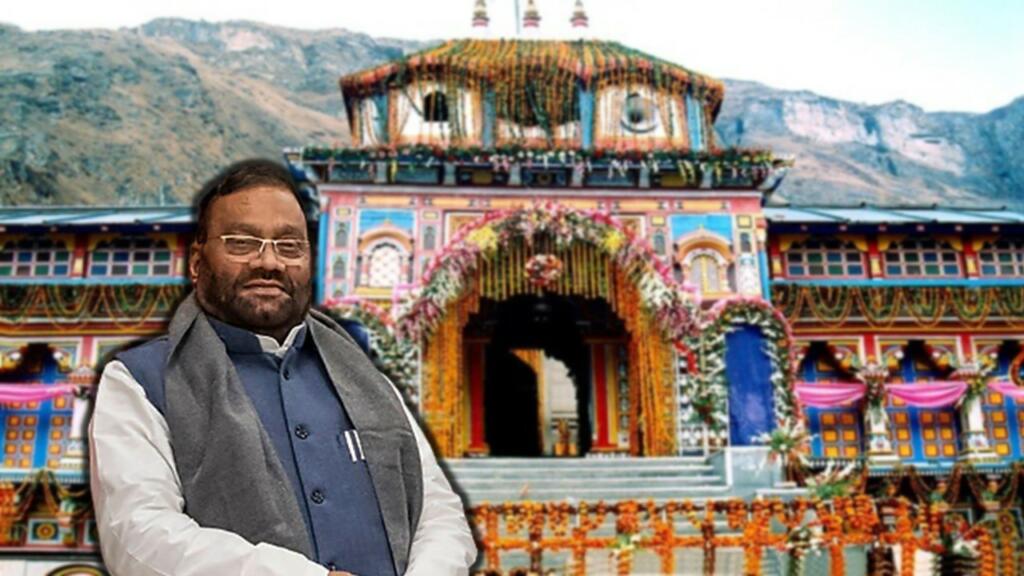The ancient town of Badrinath, nestled amidst the majestic Himalayas, is revered as a sacred Hindu pilgrimage site. Over the years, it has captured the imaginations of millions of devotees and travelers alike. However, recent statements made by Swami Prasad Maurya, a prominent political figure, have ignited a fiery debate over the history and significance of Badrinath.
Let’s delve into the historical background of Badrinath, explore the controversies surrounding its origins, and shed light on the role of faith and politics in shaping the narratives that surround this hallowed shrine.
The History of Badrinath
Badrinath has a rich and multifaceted history that intertwines mythology, religious texts, and archaeological findings. According to ancient Hindu scriptures like the Skanda Purana, Vishnu Purana, and Mahabharata, the story of Badrinath revolves around Devarishi Narada’s visit to Lord Vishnu in Ksheersagar. This divine encounter led to the emergence of the revered Badrinath deity.
Legend has it that during a conversation with Lord Vishnu, Devi Lakshmi was seen caressing his feet. Upon feeling guilty about this display of affection, Lord Vishnu embarked on a profound penance in the Himalayas. To protect him from the harsh elements, Devi Lakshmi transformed into the Badri Vriksha, an ancient tree said to have stood near the present temple. In gratitude for her devotion, Lord Vishnu declared that both he and Devi Lakshmi would be worshiped together at this sacred location, hence giving rise to the holy shrine of Badrinath.
Also read: Yo ISKCON, so Intolerant
The Significance of Adi Shankaracharya
The early history of Badrinath remained largely obscured until the 8th century when the great Hindu philosopher and theologian, Adi Shankaracharya, played a crucial role in reviving its significance. Adi Shankaracharya traveled extensively across India, propagating the doctrines of Advaita Vedanta, and establishing the Char Dham pilgrimage circuit, which includes Badrinath.
It is essential to understand that Adi Shankaracharya’s efforts were aimed at consolidating the Hindu faith and reviving its philosophical underpinnings, not usurping Buddhist land for penance, as suggested by Swami Prasad Maurya. Adi Shankaracharya’s emphasis was on promoting Hindu unity and rekindling spiritual fervor.
The worst of Opportunism
Swami Prasad Maurya’s recent statements on the origins of Badrinath have drawn sharp criticism for their audacity and divisive undertones. Labeling Badrinath as a Buddhist shrine is historically inaccurate and dismissive of the profound religious and cultural significance it holds for Hindus. Even someone as Buddhist as Mayawati took her ex minister [Swami Prasad was once in BSP, and then BJP before joining SP] to the cleaners.
आखिर मिर्ची लगी न, अब आस्था याद आ रही है। क्या औरों की आस्था, आस्था नहीं है? इसलिए तो हमने कहा था किसी की आस्था पर चोट न पहुँचे इसलिए 15 अगस्त 1947 के दिन जिस भी धार्मिक स्थल की जो स्थिति थी, उसे यथास्थिति मानकर किसी भी विवाद से बचा जा सकता है। अन्यथा ऐतिहासिक सच स्वीकार करने के…
— Swami Prasad Maurya (@SwamiPMaurya) July 28, 2023
1. समाजवादी पार्टी के नेता श्री स्वामी प्रसाद मौर्य का ताजा बयान कि बद्रीनाथ सहित अनेकों मन्दिर बौद्ध मठों को तोड़कर बनाये गये हैं तथा आधुनिक सर्वे अकेले ज्ञानवापी मस्जिद का क्यों बल्कि अन्य प्रमुख मन्दिरों का भी होना चाहिए, नए विवादों को जन्म देने वाला यह विशुद्ध राजनीतिक बयान।
— Mayawati (@Mayawati) July 30, 2023
The Swami’s attempt to appear secular by revising the history of Badrinath raises questions about his true intentions. Accusing Adi Shankaracharya of using a Buddhist monastery for penance contradicts the philosopher’s well-documented dedication to Hindu revivalism. Such statements seem politically motivated and intended to stoke controversy for personal gain.
The Balancing Act of Faith and Historical Inquiry
When analyzing historical events, it is crucial to approach the subject matter with an open mind, considering various perspectives and available evidence. While some theories may suggest that Badrinath may have had earlier connections to Buddhism, this does not diminish its current stature as a prominent Hindu shrine.
Also read: Understanding the Upanishads : Parmatma the Architect
History is often layered and complex, and attempting to fit it into rigid narratives for political or religious purposes can lead to misunderstandings and conflicts. Faith and historical inquiry can coexist harmoniously if approached with humility and respect for each other’s beliefs.
Badrinath remains an epitome of faith, spirituality, and cultural heritage. Its history is shaped by myth, legends, and documented religious scriptures. The attempts by Swami Prasad Maurya to reframe its narrative for political gains have raised eyebrows and sparked heated discussions.
Support TFI:
Support us to strengthen the ‘Right’ ideology of cultural nationalism by purchasing the best quality garments from TFI-STORE.COM
